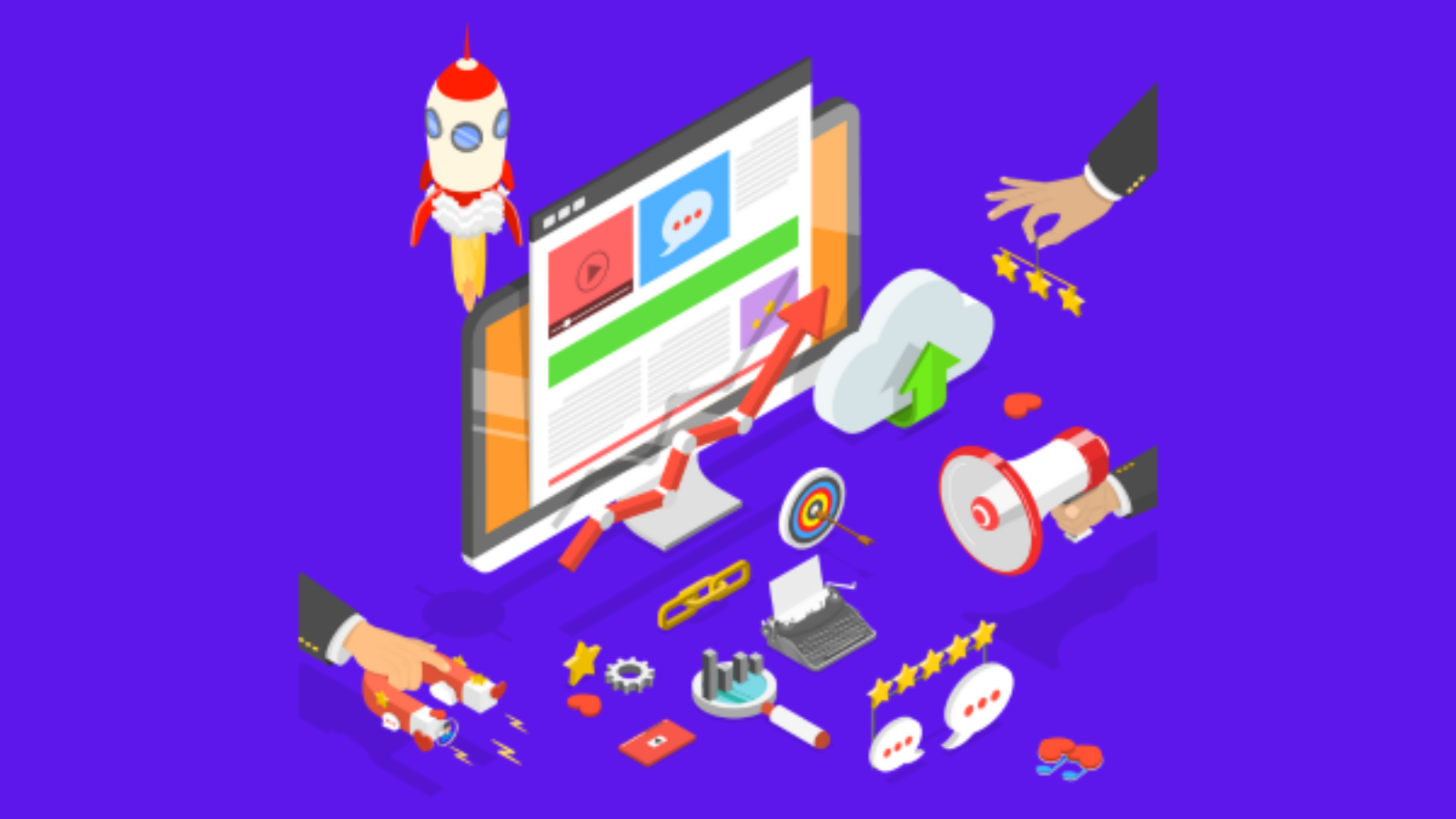In today’s fast-paced digital world, understanding digital marketing is crucial for businesses looking to thrive. Whether you’re a small startup or an established brand, embracing digital marketing strategies can significantly impact your visibility and success. In this guide, we’ll explore the ins and outs of digital marketing, its benefits, strategies, tools, and much more. Let’s dive in!
What is Digital Marketing?
Digital marketing refers to the promotion of products or services using digital channels, primarily on the internet. It encompasses a wide range of strategies, techniques, and tools that help businesses reach their target audience online. From social media and email campaigns to search engine optimization (SEO) and content marketing, digital marketing has become an integral part of any business strategy.
Key Components of Digital Marketing
- Search Engine Optimization (SEO): Improving a website’s visibility on search engines to attract organic traffic.
- Content Marketing: Creating valuable content to engage and inform potential customers.
- Social Media Marketing: Using social media platforms to connect with the audience and promote products or services.
- Email Marketing: Sending targeted emails to nurture leads and retain customers.
- Pay-Per-Click (PPC) Advertising: Paying for ads to appear on search engines and social media.
- Affiliate Marketing: Collaborating with partners to promote products in exchange for a commission.
Benefits of Digital Marketing
Digital marketing offers numerous advantages over traditional marketing methods. Here are some key benefits:
1. Cost-Effectiveness Compared to Traditional Marketing
One of the most significant advantages of digital marketing is its cost-effectiveness. Unlike traditional advertising methods, such as print or TV ads, digital marketing campaigns can be tailored to fit any budget. Whether you’re spending a little or a lot, you can reach a larger audience online.
2. Enhanced Reach and Visibility
With billions of users on the internet, digital marketing allows businesses to expand their reach far beyond their local area. You can connect with customers globally, increasing your brand’s visibility and awareness.
3. Targeting Specific Audiences
Digital marketing enables precise targeting. You can create specific customer personas and tailor your campaigns to reach the right people. This means your marketing efforts are more effective and yield better results.
4. Real-Time Analytics and Feedback
Digital marketing provides instant access to performance metrics. You can track the effectiveness of your campaigns in real time, allowing you to make data-driven decisions and optimize your strategies accordingly.
5. Improved Customer Engagement and Communication
Engaging with your audience has never been easier. Digital marketing channels allow for direct communication with customers, fostering relationships and encouraging feedback. This two-way interaction builds trust and loyalty.
6. Increased Conversion Rates
With targeted campaigns and effective calls-to-action (CTAs), digital marketing can significantly improve your conversion rates. By directing potential customers to your website or landing pages, you increase the likelihood of them taking the desired action.
Digital Marketing Strategies for Small Businesses

For small businesses, digital marketing is a game-changer. Here are some effective strategies to consider:
1. Importance of Digital Marketing for Small Businesses
Small businesses often operate on tight budgets. Digital marketing allows them to compete with larger companies by leveling the playing field. A well-executed digital marketing strategy can yield impressive results without breaking the bank.
2. Content Marketing Strategies
Creating high-quality, valuable content is key to attracting and retaining customers. Start a blog, produce videos, or share infographics that resonate with your audience. This not only establishes your authority but also drives organic traffic to your site.
3. Social Media Marketing Tactics
Social media platforms are powerful tools for small businesses. Create engaging posts, run contests, and interact with your audience. Use platforms like Facebook, Instagram, and LinkedIn to showcase your brand’s personality and connect with potential customers.
4. Email Marketing Campaigns
Email marketing is an effective way to nurture leads and retain existing customers. Build an email list and send out newsletters, promotions, and personalized content. Make sure to segment your audience to deliver relevant messages that resonate with them.
5. SEO Best Practices for Small Businesses
Optimize your website for search engines to attract organic traffic. Focus on keyword research, on-page optimization, and local SEO to ensure your business is visible to potential customers searching for your products or services.
6. Pay-Per-Click (PPC) Advertising
PPC advertising can provide immediate results. Platforms like Google Ads and Facebook Ads allow you to target specific demographics and drive traffic to your website. Start with a small budget and scale up as you see positive results.
7. Leveraging Local SEO
For small businesses, local SEO is crucial. Optimize your Google My Business listing, gather positive reviews, and use local keywords to attract customers in your area. This strategy enhances your visibility in local search results.
How Does Digital Marketing Work?
Understanding how digital marketing works can help you create effective strategies. Here’s a brief overview:
1. Overview of Digital Marketing Channels
Digital marketing encompasses various channels, including SEO, content marketing, social media, email marketing, and PPC. Each channel serves a different purpose, and integrating them can maximize your marketing efforts.
2. The Role of Data and Analytics
Data plays a vital role in digital marketing. Use analytics tools to monitor user behavior, campaign performance, and conversion rates. This information helps you make informed decisions and refine your strategies.
3. Understanding the Customer Journey
The customer journey refers to the steps a potential customer takes from awareness to purchase. Understanding this journey allows you to create targeted marketing campaigns that address the needs and preferences of your audience at each stage.
4. The Conversion Funnel in Digital Marketing
The conversion funnel consists of several stages: awareness, consideration, and decision. By creating tailored content for each stage, you can guide potential customers through the funnel and increase your chances of conversion.
5. How Different Strategies Integrate
Successful digital marketing involves integrating various strategies. For instance, you can use social media to promote your blog content, leverage email marketing to share valuable resources, and optimize your website for search engines to attract organic traffic.
Types of Digital Marketing
Digital marketing encompasses various types of marketing strategies. Let’s explore some of the most popular ones:
1. Search Engine Optimization (SEO)
SEO is the process of optimizing your website to rank higher in search engine results. This includes keyword research, on-page optimization, link building, and ensuring your website is mobile-friendly.
2. Content Marketing
Content marketing focuses on creating and sharing valuable content to attract and engage a target audience. This can include blog posts, videos, podcasts, and infographics.
3. Social Media Marketing
Social media marketing involves using social platforms to connect with your audience. Share engaging content, run promotions, and interact with followers to build brand awareness and loyalty.
4. Email Marketing
Email marketing is a direct way to communicate with your audience. Send newsletters, promotional offers, and personalized content to nurture leads and retain customers.
5. Pay-Per-Click (PPC) Advertising
PPC advertising allows you to pay for ads that appear on search engines and social media. You only pay when someone clicks on your ad, making it a cost-effective way to drive traffic to your site.
6. Affiliate Marketing
Affiliate marketing involves partnering with individuals or companies to promote your products in exchange for a commission. This strategy can help you reach a broader audience and boost sales.
7. Influencer Marketing
Influencer marketing leverages the power of social media influencers to promote your brand. Collaborating with influencers can enhance your reach and credibility among their followers.
8. Mobile Marketing
With the rise of smartphones, mobile marketing has become essential. Ensure your website is mobile-friendly, and consider SMS marketing and in-app advertising to reach your audience on their mobile devices.
Digital Marketing vs. Traditional Marketing
Understanding the differences between digital and traditional marketing can help you choose the right strategies for your business. Here’s a comparison:
1. Key Differences Between Digital and Traditional Marketing
- Cost: Digital marketing is generally more cost-effective than traditional methods.
- Targeting: Digital marketing allows for precise audience targeting, while traditional marketing casts a wider net.
- Measurement: Digital campaigns provide real-time analytics, whereas traditional methods often lack immediate feedback.
2. Advantages of Digital Marketing
Digital marketing offers flexibility, scalability, and the ability to adapt quickly to changes in consumer behavior and market trends.
3. When to Use Traditional Marketing Methods
Traditional marketing can still be effective for certain audiences. Consider using print ads, TV commercials, or direct mail for local businesses or demographics that may not be as active online.
4. Case Studies: Successful Digital vs. Traditional Marketing Campaigns
Review successful campaigns to see how businesses have effectively leveraged digital marketing strategies over traditional methods, showcasing measurable results and customer engagement.
Importance of Digital Marketing in 2024
As we look ahead to 2024, the importance of digital marketing continues to grow. Here are a few reasons why:
1. Evolving Consumer Behavior
Consumers are increasingly turning to the internet for information and purchasing decisions. Adapting your marketing strategies to meet this shift is essential for success.
2. The Impact of Technology on Marketing
Advancements in technology, such as AI and machine learning, are changing the landscape of digital marketing. Embracing these innovations can enhance your marketing efforts.
3. Increasing Competition and Market Saturation
As more businesses enter the digital space, standing out from the competition is crucial. A solid digital marketing strategy can help you differentiate your brand and attract customers.
4. The Necessity for a Strong Online Presence
A strong online presence is essential for credibility and customer trust. Businesses without a digital footprint risk being overlooked by potential customers.
Conclusion
In conclusion, digital marketing is an essential component of modern business strategies. Understanding its various elements, benefits, and strategies can help you navigate the digital landscape and connect with your audience effectively. As you embrace digital marketing, remember to stay updated on trends and continuously refine your approach for the best results.

